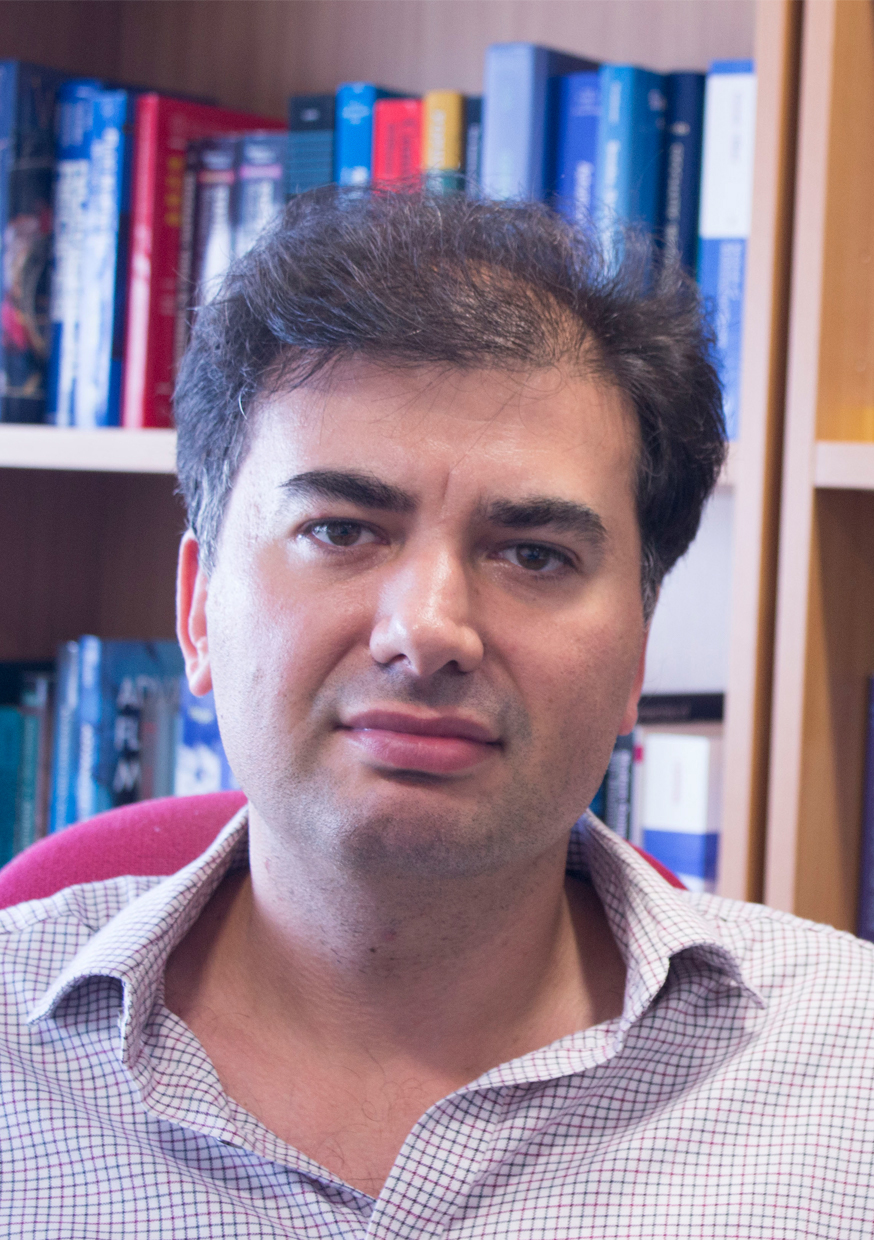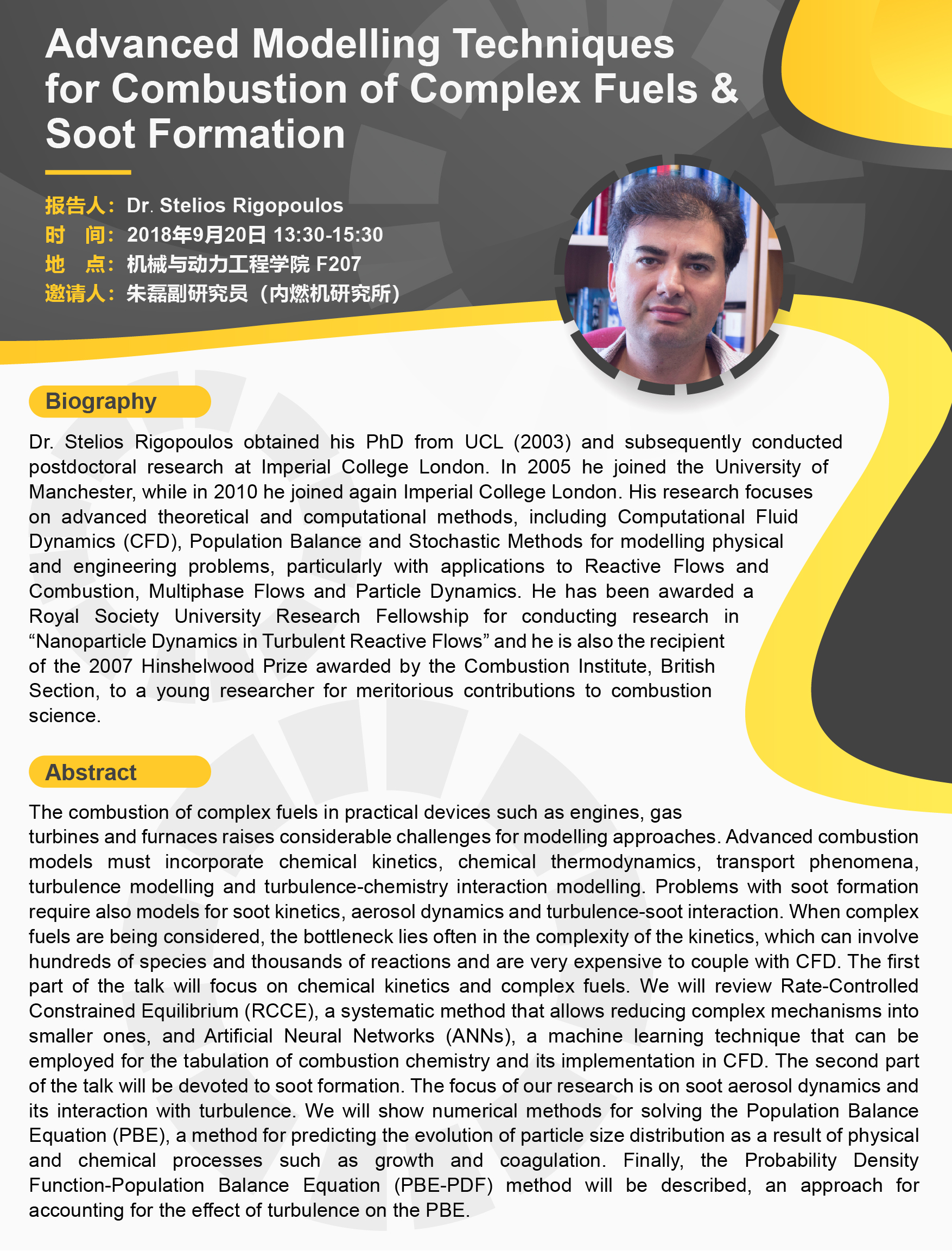
Events

Events
Title: Advanced Modelling Techniques for Combustion of Complex Fuels and Soot Formation
Time: 13:30 to 15:30, Sep. 20, 2018
Place: F207, School of Mechanical Engineering
Host: ZHU Lei, Assistant Professor (Institute of Internal Combustion Engine)
Biography
Dr. Stelios Rigopoulos obtained his PhD from UCL (2003) and  subsequently conducted postdoctoral research at Imperial College London. In 2005 he joined the University of Manchester, while in 2010 he joined again Imperial College London. His research focuses on advanced theoretical and computational methods, including Computational Fluid Dynamics (CFD), Population Balance and Stochastic Methods for modelling physical and engineering problems, particularly with applications to Reactive Flows and Combustion, Multiphase Flows and Particle Dynamics. He has been awarded a Royal Society University Research Fellowship for conducting research in “Nanoparticle Dynamics in Turbulent Reactive Flows” and he is also the recipient of the 2007 Hinshelwood Prize awarded by the Combustion Institute, British Section, to a young researcher for meritorious contributions to combustion science.
subsequently conducted postdoctoral research at Imperial College London. In 2005 he joined the University of Manchester, while in 2010 he joined again Imperial College London. His research focuses on advanced theoretical and computational methods, including Computational Fluid Dynamics (CFD), Population Balance and Stochastic Methods for modelling physical and engineering problems, particularly with applications to Reactive Flows and Combustion, Multiphase Flows and Particle Dynamics. He has been awarded a Royal Society University Research Fellowship for conducting research in “Nanoparticle Dynamics in Turbulent Reactive Flows” and he is also the recipient of the 2007 Hinshelwood Prize awarded by the Combustion Institute, British Section, to a young researcher for meritorious contributions to combustion science.
Abstract
The combustion of complex fuels in practical devices such as engines, gas turbines and furnaces raises considerable challenges for modelling approaches. Advanced combustion models must incorporate chemical kinetics, chemical thermodynamics, transport phenomena, turbulence modelling and turbulence-chemistry interaction modelling. Problems with soot formation require also models for soot kinetics, aerosol dynamics and turbulence-soot interaction. When complex fuels are being considered, the bottleneck lies often in the complexity of the kinetics, which can involve hundreds of species and thousands of reactions and are very expensive to couple with CFD. The first part of the talk will focus on chemical kinetics and complex fuels. We will review Rate-Controlled Constrained Equilibrium (RCCE), a systematic method that allows reducing complex mechanisms into smaller ones, and Artificial Neural Networks (ANNs), a machine learning technique that can be employed for the tabulation of combustion chemistry and its implementation in CFD. The second part of the talk will be devoted to soot formation. The focus of our research is on soot aerosol dynamics and its interaction with turbulence. We will show numerical methods for solving the Population Balance Equation (PBE), a method for predicting the evolution of particle size distribution as a result of physical and chemical processes such as growth and coagulation. Finally, the Probability Density Function-Population Balance Equation (PBE-PDF) method will be described, an approach for accounting for the effect of turbulence on the PBE.


Shanghai Jiao Tong University
Address: 800 Dongchuan Road, Shanghai
200240